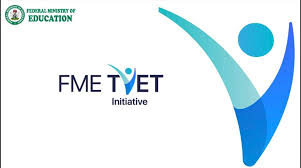Education
FG Urged to Empower Traditional, Religious Leaders to Retain Girls in School – Group

Dr Mairo Mandara, African Lead, Keeping Girls in School, Africa initiative (KGIS) has called on the Federal Government to give traditional and religious leaders central role in ensuring every child attends school.
Mandara was speaking at a dissemination meeting with the theme: “African Traditional and Religious Leaders Taking the Lead in Keeping Girls in School’’ on Monday in Abuja.
She said that giving the traditional and religious leaders this key role would translate into ensuring rigorous enlightenment within their communities that would ensure girl-child complete schooling.
According to her, religious and traditional leaders are capable of disseminating the message and the desired change needed to transform the country.
She described the initiative, KGIS as a two-year scheme introduced in Nigeria and Ethiopia, to make traditional and religious leaders champions for retaining girls in schools.
“What has resulted in the two years pilot of KGIS in Nigeria and Ethiopia is that we have been able to inculcate over 800 traditional leaders and religious leaders to be champions for keeping girls in school.
“Before, we used to say that our culture and religion do not encourage education, what we found out is that this is not true, but our approach to doing things.
“What we have also achieved is ensuring traditional leaders take the lead in advocating and ensuring girls complete at least secondary school.
“When these religious and traditional leaders talk to parents who do not go to school, they actually listen to them and so, they put their children in school,’’ she said.
Mandara said that getting the girl-child in school and ensuring they completed their secondary education would go a long way in addressing poverty, maternal and child mortality, increase family health and income.
“We need to ensure that traditional and religious leaders are given central role in monitoring schools, in ensuring every child goes to school and in ensuring every teacher goes to school.
“Because the data that we have seen shows that when girls complete secondary school, it will reduce maternal and child mortality, increase family health and also increase family income,’’ she added.
The Emir of Zamfara, Alhaji Attahiru Mohammad, said that the state had also engaged in advocacy, sensitisation and enlightenment programmes to have girls in school.
“During the advocacy, we have made it clear to parents that this is beyond the government and a lot of them are doing well by providing what they require concerning education.
“For the poor families who could not sponsor the education of their child, we have the Emirate Foundation where we raise appeal fund to help them,’’ he said.
In the same vein, Dr Saadhna Panday-Soobrayar, the Chief Education, UNICEF Nigeria, said investment in girls’ education, in particular secondary education, would dramatically increase the lifetime earnings of girls.
She said that this would also reduce early child marriage, child mortality rate and child stunting.
“In my home country, South Africa, we demonstrated that simply keeping girls in secondary school (with no other intervention), was enough to protect girls from early pregnancy and HIV.’’
Panday-Soobrayar said that Nigeria had advanced in closing the gender gap in education, but significant regional disparities that remained was in enrolment, retention, and transition rates for girls.
“One in two girls do not transit to junior secondary school and in rural areas. For every 25 boys, who complete junior secondary school, only nine girls do so.
“This is fuelled by a complex interplay of factors including high rates of poverty, safety and security concerns, gender biases and social norms and traditions.
“There is no magic bullet to solve girls’ access to quality education. It needs sustained, comprehensive, multi-sectoral and multi-stakeholder initiatives that are delivered with speed, scale, and quality.
“ While government attends to improving the supply of quality education, provision must be matched with demand for high quality education,’’ she said. (NAN)
Education
Unresolved Renegotiation: ASUU Sets For Another Showdown With FG

From Ene Asuquo, Calabar
As a result of the unresolved renegotiation between Academic Staff Union of Universities and the Federal Government of Nigeria, the Union has sent a message of
Imminent danger to industrial harmony in Nigerian University system.
In a press statement in Calabar, ASUU has warned that they would embark on an indefinite strict action in a few days to come because of federal government’s insincerity in keeping to terms after the 14-day warning strike and another four weeks of grace was given which will expire on the 21st of November 2025.
According to them, “We have gathered not merely as members of ASUU, but as citizens whose patience has been stretched far beyond its elastic limits.
Occasioned by broken promises, shattered dreams, and deepening crises in the education sector, we hereby express deep concern over government’s inconsistency and dilatory approach to agreements, engagements and negotiations”.They stated that the renegotiation of the 2009 FGN/ASUU Agreement was not a gift. It was an obligation to Nigerian University Lecturers. Government owes Lecturers their due wages and her citizens and the dignity of decent and functional education.
They maintained that the fight is for the survival of Nigeria’s intellectual soul, while outlining the issues in contention to include: renegotiation of workers’ Conditions of Service since 2009 in tandem with changing times and inflationary trends over the years, funding for revitalization of infrastructures, University autonomy, academic freedom, undue proliferation of Universities without assured sustainable funding.
The Union stressed further that Government grandstanding, insensitivity and silence are deliberate to destroy academic system and ASUU is ready to shut down totally and completely in a few days.
Recall that ASUU gave the FGN 14-day ultimatum to conclude the renegotiation which according to them was enough to made government do the needful and they watched to no avail. ASUU then graduated to 2 weeks Warning Strike, which was suspended after NEC of 22nd October, 2025 due to the intervention of well-meaning Nigerians, the Nigeria Labour Congress, parents and students to create enabling opportunity for a meaningful dialogue.
“Let the Federal Government return to the path of truth, fairness and good conscience. Let the government hear us clearly: they cannot destroy public education, starve lecturers with a slavish salary, deduct and withhold part of legitimate Lecturers salaries by way of 3rd party deductions, deny students a conducive environment for effective learning and expect peace”.
“ASUU has been consistent: we are not asking for personal enrichment. We are demanding that the government fulfills its obligations to the Nigerian people by funding education properly, otherwise, we shall resume the STRIKE itself; not the father or mother of all strikes”.
“This will be a total, comprehensive and indefinite strike action. We are ready to shut down for as long as the government wants it to last because he who has been pushed down fears no fall Education is the foundation of personal and national development,” the stated.
“The problem is not paucity of funds as the government posits but lack of political will to invest in the development of Nigeria. The figures and empirical data from Federation Account Allocation Committee (FAAC) has revealed that in 2022, States received N3.02 trillion while in 2024, the figures rose to N5.81 trillion with an increase of over 62%. Similarly, federal allocations rose from N3.42 trillion in 2022 to N4.65 trillion with an increase of over 70%. This is clear evidence that the government has the capacity to pay Lecturers”. They maintained.
Education
TVET: FG Begins Nationwide Training for 100,000 Youths in 1,500 Centers

The Federal Government has begun training no fewer than 100,000 youths in 1,500 Technical and Vocational Education and Training (TVET) centers across the country.
The Minister of State for Education, Prof. Suwaiba Sa’id, made the announcement on Monday in Kano.
This was during an inspection visit to Bayero University, Kano (BUK), where Sa’id assessed ongoing vocational training initiatives supported by the ministry.
“The administration is committed to expanding opportunities for our youths to acquire industry-relevant skills that will make them self-reliant and employable,” she said.
The minister said that the programme covered a wide range of trades including carpentry, welding, plumbing, ICT, automobile repair, tailoring, among other skills in high demand.
She said that the initiative was designed to ensure that beneficiaries of the programme became self-reliant, job creators and active contributors to the nation’s economic growth.
According to her, the provision of starter packs will complement the government’s drive to reducing unemployment and addressing the persistent skills gap in the country.
“The administration of President Bola Tinubu is committed to strengthening technical and vocational education because it remains a critical pathway to empowering young Nigerians.
“Providing starter packs will enable our youths to put their training into practical use immediately,” she said.
Sa’id commended BUK for its commitment toward implementing the programme.
She said that the ministry would continue to partner institutions that promoted innovation, productivity and entrepreneurship.
Also speaking, the Vice-Chancellor, BUK, Prof. Haruna Musa, said the programme was timely as the country continued to grapple with low employability, reduced productivity and slow economic growth.
Those, he said, were due to inadequate skills among its youth population.
Musa was represented by the Deputy Vice-Chancellor (Academic), Prof. Ahmad Tsauni.
He said the programme was designed to equip young Nigerians with practical and entrepreneurial skills that would enhance job creation, innovation and national development.
Musa encouraged participants to take full advantage of the opportunity by learning diligently and transforming themselves into agents of positive change in their communities.
“BUK will continue to invest in research, innovation and strategic partnerships to expand opportunities for youth employment and industrial growth,” he said
The vice-chancellor commended the Federal Ministry of Education and other partners for their support in ensuring the successful take-off of the programme.
A beneficiary, Muhammad Ali lauded the government for, what he described as, the timely gesture.
He expressed appreciation, describing the initiative as a crucial step toward youth empowerment and national development.
Education
Mainstream Energy to Upgrade ABU Roads, Facilities

Mainstream Energy Solutions, a privately-owned power-generating company, has offered to support infrastructure renewal at the Ahmadu Bello University (ABU), Zaria.
This was disclosed in a statement issued on Saturday in Zaria by the Director, Public Affairs Directorate of the university, Malam Auwalu Umar.
He said the company also announced plans to partner with the institution on its 45th convocation scheduled for January 2026.
According to him, the form has also pledged to assist in the upgrade of the university’s internal roads, most of which were constructed in the 1960s and have never been rehabilitated.
“The institution’s nearly 30 kilometres of internal roads across its two campuses are currently in a state of near collapse.
“The company also indicated readiness to support the rehabilitation of toilets and improvement of water supply on the campuses.
“As part of preparations for the convocation, the company will give the 1,000-seater Abdullahi Mahadi Conference Centre a facelift ahead of the convocation lecture,” Umar said.
He quoted the Vice-Chancellor, Prof. Adamu Ahmed, as expressing deep appreciation for what he described as a long-standing and growing partnership since 2017.
He recalled paying a courtesy visit to the company in Abuja earlier in the week to thank it for its sustained support.
He stated that mainstream energy’s interventions had consistently come at crucial moments, especially when the university’s energy cost escalated to an unsustainable N370 million in May 2025.
Ahmed said the university was particularly excited about the company’s plan to replicate a Kainji Dam-model power plant at ABU’s Faculty of Engineering; a project expected to revolutionise practical training and research.
He also described as “a powerful demonstration of belief in the future of Nigerian youths” the firm’s decision last week to convey 20 ABU students via chartered flight to the Kainji facility for a hands-on excursion.
“Mainstream Energy Solutions has truly set a benchmark for industry-academia collaboration in Nigeria, aligned with national development goals,” Ahmed said.

































